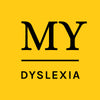
Albert Einstein
"Everybody is a genius. But if you judge a fish by it's ability to climb a tree, it will live it's whole life believing that it is stupid."
Dyslexia is difficulty in reading and writings. Dyslexia is often hereditary and occurs in 5-10% of the population, and 10-20% of the population has different kind of learning difficulties. Dyscalculia (mathematical learning difficulty) occurs 3-7% of the population.
BUT. Many successful entrepreneurs, actors and inventors have dyslexia - and this is what has actually helped them to succeed. Dyslexia should also be seen as strengths. Dyslectics can be a great opportunity and resource if they are just seen and given the chance. We need different kinds of people.
Common questions about dyslexia
- Slowness and difficulty in reading
- Difficulty in writing
- Understanding and internalizing what is read
- Difficulties in memory
Dyscalculia is a developmental disorder of calculating ability
- Difficulties in memory
-The multiplication table is difficult to learn
- The numbers do not open
- Even simple calculations are challenging
- difficult to read the time
- Reading and understanding schedules is difficult
- Accept her as she is
-Helping her find the way she learns best
-
Maintaining the joy of learning
- see her strengths
- Positivity
- Ability to simplify things
- "Out of the box” thinking
- Good problem solving skills
- Courage
- Creativity
- Know the ways they learn
- Know their own strengths
- Don't give up easily
- Emotional intelligence
- “Can do” attitude
Did you know that they have dyslexia?

Richard Branson
English business man and investor. Founded the Virgin Group, which controls more than 400 companies in various fields.
“You don’t learn to walk by following rules. You learn by doing, and by falling over.”

Jennifer Aniston
Actor and film producer.
“Once you figure out who you are and what you love about yourself, I think it all kind of falls into place.”

Thomas Edison
American inventor and businessman. He was one of the biggest inventors of his time.
"I have not failed. I've just found 10,000 ways that won't work."
Test whether you have reading difficulties - quick test
Use the quick test to test if you have a reading problem. You will receive the results in your email. There are 22 questions. The quick test tells you whether you have a reading difficulty or a learning difficulty.
Is reading foreign words difficult for you? Do you find it difficult to receive and forward phone messages?
The list is based on the British Dyslexia Association's checklist for adults, and during the first month, 14,000 Finns have already taken the test. About 6-10 percent of Finns have difficulties in reading or writing.
Is reading slow?
Is it difficult to remember the content of the text you read?
Is reading foreign words difficult for you?
Do you avoid reading?
Do you have spelling mistakes?
Do you often make careless mistakes?
Has learning foreign languages been difficult for you?
If you're doing something and you're interrupted, do you forget what you were doing?
Is expressing things in writing difficult for you?
Do you find it difficult to receive and forward phone messages?
Do you have a hard time remembering people's names, even when you try to remember them?
Do you find it difficult to count in your head without aids?
Was learning the multiplication table difficult at school?
Do you easily get the phone numbers wrong when you dial them?
Is reading a map or finding your way around a new place difficult for you?
Is it difficult for you to follow the speech in, for example, a large group?
Do you find it difficult to pronounce long words?
Do you often mix up dates and times so that you arrive at the wrong time for appointments?
Do you find it difficult to remember the order of the months fluently?
Do you find it difficult to list the names of the months backwards?
Do you find it difficult to fill out forms?
Do you often mix up right and left?
Quick test results
Hey,
thank you very much for taking the quick test. There were %questions% and you answered %yes% Yes and %no% No.
You answered more than half of the questions, so you may have a reading problem. Read more about reading difficulties.
Please note that the test is not an official reading test, but it can be used to initially determine the possibility of a reading difficulty.
Determining a reading disability
If the test gives reason to suspect a reading or learning difficulty, it is advisable to contact the health care or, for example, the school's special education teacher or psychologist for further examinations. You can also contact interest organizations such as The Finnish Diverse Learners' Association. Reading difficulties can be diagnosed by a special education teacher, speech therapist, psychologist or neuropsychologist based on research. A reading disorder can also be diagnosed by a doctor based on tests.
Background of the test
The list is based on the British Dyslexia Association checklist for adults. The questions have been modified based on the experiences of the Rehabilitation Foundation's Learn to Learn project.
Tips:
• For reading and learning: check out Celia's audio books.
• If you have difficulties with writing, you should familiarize yourself with these aids .
You answered less than half of the questions, so you probably don't have a reading problem. Read more about reading difficulties.
Please note that the test is not an official reading test, but it can be used to initially determine the possibility of a reading difficulty.
Hey,
thank you very much for taking the quick test. There were %questions% and you answered %yes% Yes and %no% No.













